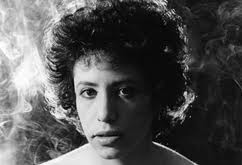A CHAT WITH: JANIS IAN
aaamusic | On 26, Feb 2014
Janis Ian, American folk singer, songwriter, musician, columnist and science fiction author has won two Grammy Awards. These were for ‘At Seventeen’ and Best Spoken Word Album for her autobiography Society’s Child in 2013. Interviewer Anthony Weightman chatted to her in Nashville ahead of her UK tour with Tom Paxton in March, 2014.
Anthony Weightman: I chatted with Tom Paxton last year (read the interview here…) and my personal memory is of a very pleasant and intelligent man with strongly held views. Are you looking forward to your tour with him in the UK this March?
Janis Ian: Oh, sure. I’m the one who pushed for it. Absolutely! We’ve known each other since thirteen. I did my first show in New York and Tom was there. Musically and historically we have a lot in common.
Anthony Weightman: I know you once played Carnegie Hall with Pete Seeger who sadly passed away this week. Would you like to say a few words about his passing?
Janis Ian: I think he set a standard for all of us. A standard for integrity and ethics that we’ve all tried to live up to. It’s hard to imagine a world without Pete. Most of us in my area grew up with him. One of my earliest memories was sitting on his knee and being bounced up and down whilst he sang something. So, it’s a huge loss. On the other hand, he had a fantastically wonderful life. A very full life and a very embraced life.
His wife died two years earlier and that left a huge gaping hole. He was ready. He’d been honoured by the President. He had become heroic in the eyes of many people, myself included, and he was an absolutely marvellous songwriter, performer and player. It was a life well lived.
Anthony Weightman: I read your Grammy winning autobiography this week and I really loved it. In sceptical or cynical moments I know you said that you were “done with believing anything anyone said” and that the list of people you could trust grew shorter. But, in your story, you come across redeeming human qualities like kindness and generosity. I was hoping that I was reading a horror story where the nightmares would disappear and be replaced by a happy ending. Do you think most of your readers wanted that?
Janis Ian: I don’t know if that’s what they wanted, but that’s certainly the way things turned out. I found true love. Like a story book. I got my second Grammy last year. The book had four star reviews. It’s a good life. I can’t complain.
Anthony Weightman: You remember playing a game of chess illogically and being amused about winning because you confused your opponent who was playing logically. That’s something I’ve personally experienced, so I wondered whether we had a similar sense of humour. You remarked that: “Most of life had no logic, so what did it matter?”
Janis Ian: Well, when I was writing my autobiography, which seemed a pretentious thing to do, one of the things that struck me was how I had ‘lucked in’. The fluke of being in the right place at the right time. To spend the night with Jimi Hendrix when Martin Luther King was killed. To have that kind of solace. To get a Grammy for a song when I thought I was the only person in the world that felt that way. Over and over again, so long as I’m open about things, it works out for the best. When I try too hard to get rich or have a hit record, it all goes south.
Anthony Weightman: The word ‘pretentious’ is one of the last I would use to describe your autobiography.
Janis Ian: Well, Thank you.
Anthony Weightman: You once asked yourself “Why are some shows incandescent, while others leave me feeling like I’m nothing more than a good craftsman?” Did you ever answer that question to your own satisfaction?
Janis Ian: No. No more than I can answer why some days you’re writing and it’s good and on other days it’s just horrible. I think it’s part of being an artist. There are so many factors at work to a good show. For example, the ‘Tom’ shows coming up are, on average, better shows than either of us do alone. It’s still very new and we have the fun of discovery. The trick is to try to look with wonder at every moment on stage and that’s really hard when you’ve been at the theatre since eleven in the morning and the lights have gone wrong and there’s something weird with the sound. None of that is the audience’s problem. It’s your problem.
Anthony Weightman: In your book you say “At it’s heart, the process of creativity is just as mysterious to me as it is to the listener, or reader, and that’s frightening.” Is it the unknown that scares you? Venturing somewhere not knowing what you might find?
Janis Ian: No, that’s the fun part. Like when I was writing the song ‘The Tiny Mouse’ for Dame Cleo Laine as part of The Stables project. I thought “Where am I going with this?”, but it was a joy as a writer. The song led me. That was the great part. The scary part is whether I can do it again.
Anthony Weightman: You also said “Like every artist, a small place in my heart worries that I’ll never write another good song, that the talent will just up and leave me one day.” Does that still concern you?
Janis Ian: I think it concerns every artist and that’s why we rarely talk about it or think about it. It’s almost like jinxing it. Then there’s the national thing that you’ve got to keep your motor oiled . If you write every day, then if inspiration hits you will be able to harness it. If you don’t write and it hits, then you’re kind of sunk. An awful lot of being a good artist is just the ploughing through. Like being a good parent.
Anthony Weightman: There are also many references in your book to wishing to achieve more and wanting to reach your expectations. Would you say you were a very ambitious person?
Janis Ian: Ambitious to be a great song writer. Ambitious to do what I’m doing well. I don’t know if that is ambition. That’s usually tied up with wanting to be rich or famous. I’m very much like Tom. We see being well known as a means to an end. We can put out records of music we love. We can tour. We can earn a living doing something we love, which is rare.
Anthony Weightman: You mentioned that rural 70s California was to you like Easy Rider. This was the film that tried to capture the 60s generation and discussed issues like social tensions, the rise and fall of the hippie movement, drug use and communal lifestyles. Do you think this really was a classic counter culture movie that stimulated peoples imaginations in a way that other films of the time didn’t?
Janis Ian: I don’t know. I lived through that time. It’s hard for me to see a film from that time and feel that it does it justice.
Anthony Weightman: Of your Between The Lines album, you said “ We’ve caught the musical and political spirit of these times. That’s something that Tapestry doesn’t do.” You were referring to Carol King’s album Tapestry. So, despite Tapestry‘s commercial success and the praise it received for being intimate and infectious, you felt that the album had its limitations?
Janis Ian: No, I just felt that it was apples and oranges. Two completely different things. I know Carol and she’s always been wonderful to me. She’s a brilliant writer. Songs that everyone knows that have entered the consciousness of the western world. You might not know that you know all the words and yet you know them. That’s an astonishing talent. The album sold millions because of that. What I was doing was a very different thing. ‘Deeper’ is not the right word because it sounds disrespectful. I was taking more of a sociological and political stance. Carol wouldn’t have been writing an anti Vietnam War song. That’s not what she does.
Anthony Weightman: I know that sometimes you’ve lost count of the number of times you’ve been asked the same question at an interview. It’s really quite difficult to find original questions for interviews. Is there anything you’d like me to ask you that you’ve never been asked before?
Janis Ian: No. The issue is not so much that the same old questions become the same old questions. It’s when you hit somebody who says “What have you been doing since 1965?” I’ve had that asked recently! By and large I find with the British press you do your homework and you’re a lot more knowledgeable when you get on the phone than the current US music press.
Anthony Weightman: Personally I think, if I didn’t do my homework, that would be a bit arrogant. I didn’t feel I could chat to you without reading your autobiography first.
Janis Ian: Well, you’ve no idea how much I appreciate that. I got up at five this morning to do press for the UK tour and I’ve done my homework and it would be really nice if everybody else did theirs. It’s been a good press day. Everybody has done their homework. It’s a very fast world and it’s got so big and so complicated and so confusing. Everything takes such a long time to get done these days. I can understand people feeling they don’t have the time. To me, it’s like when I’m narrating someone else’s book. I know narrators who don’t even take the time to read the book before narrating it. It’s part of your job, if you take pride in your job, so that at least you’re familiar with me. You’re in the job of being an interviewer so you can talk to famous people and become a little famous yourself.
Author: Anthony Weightman







